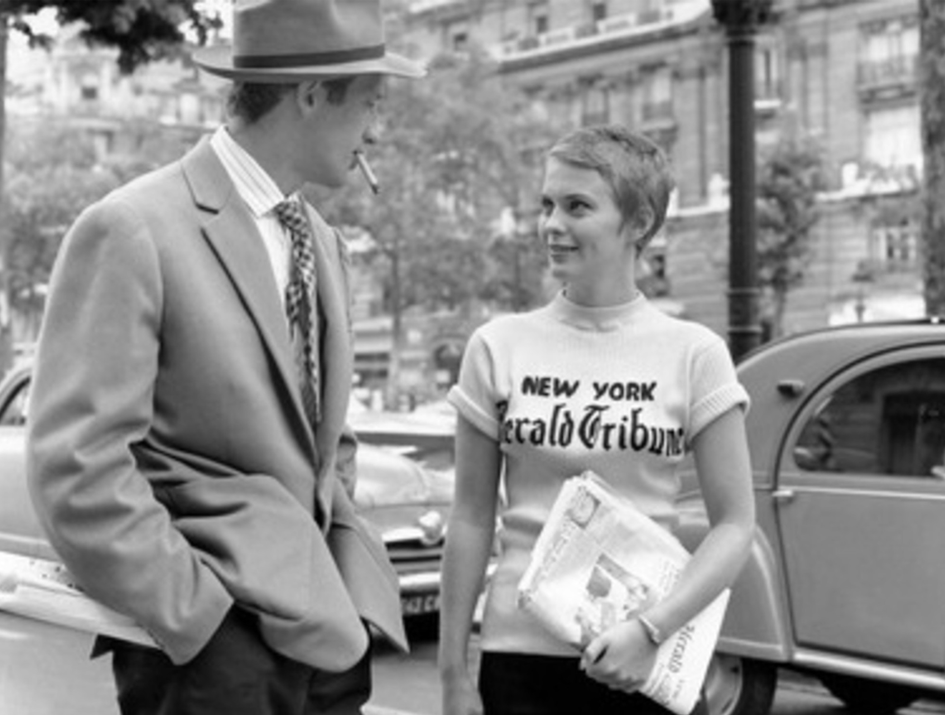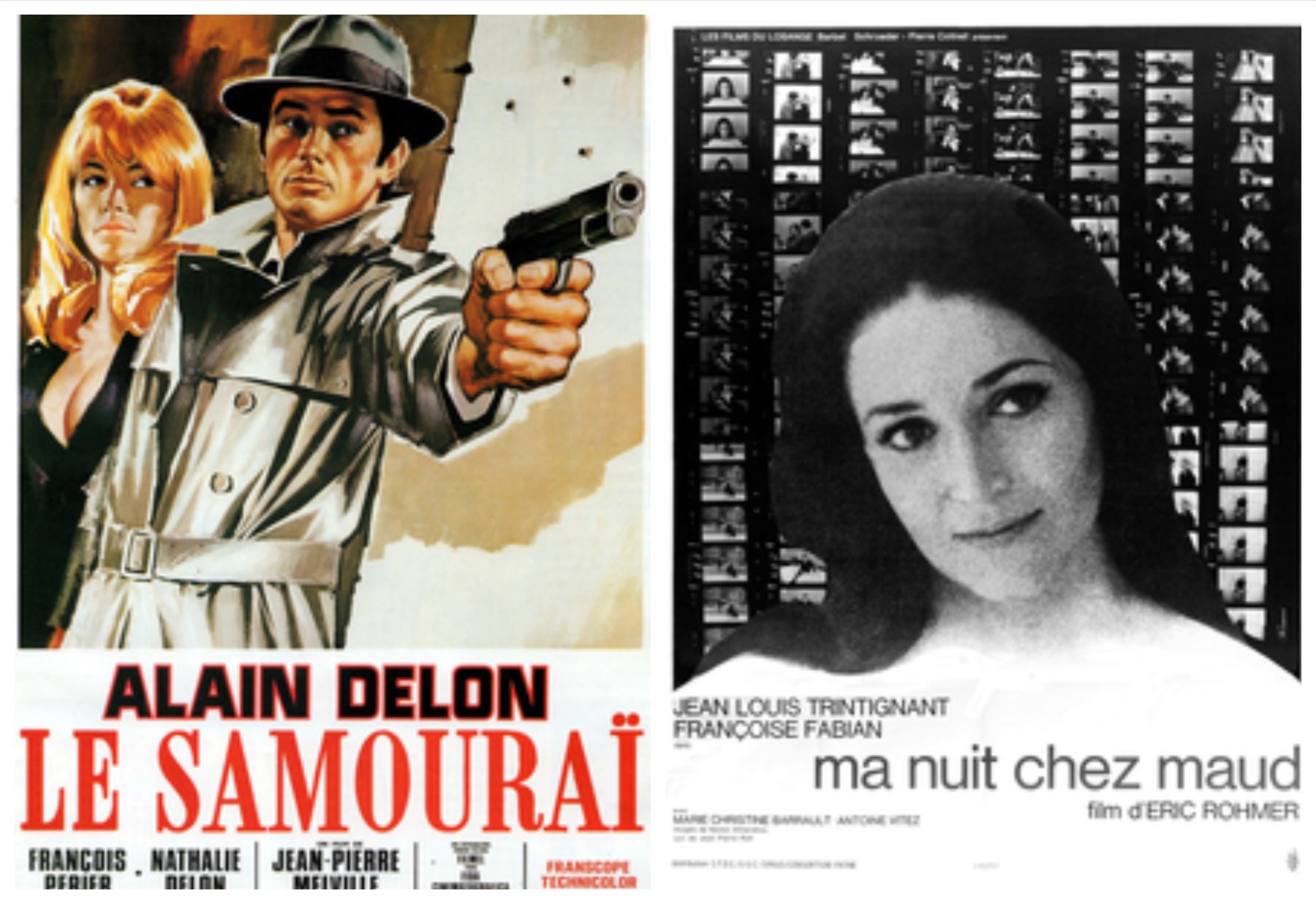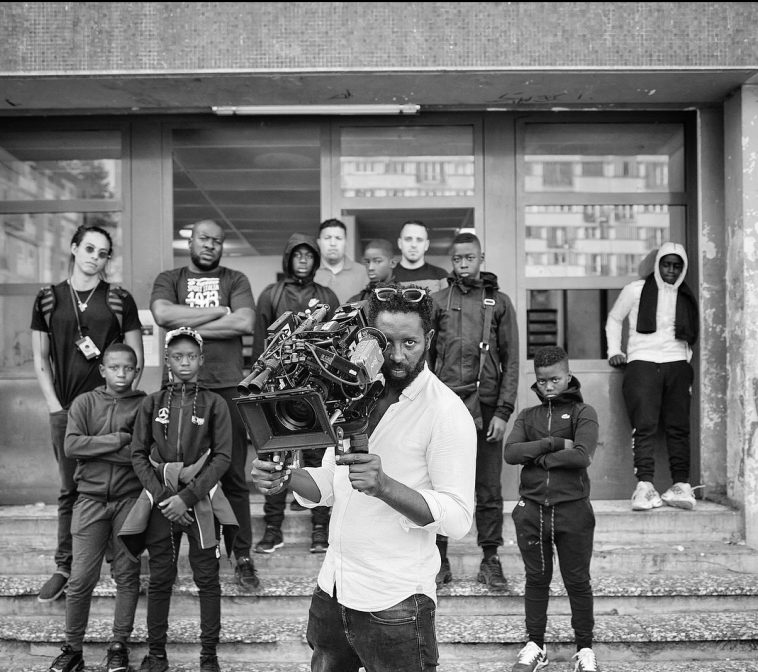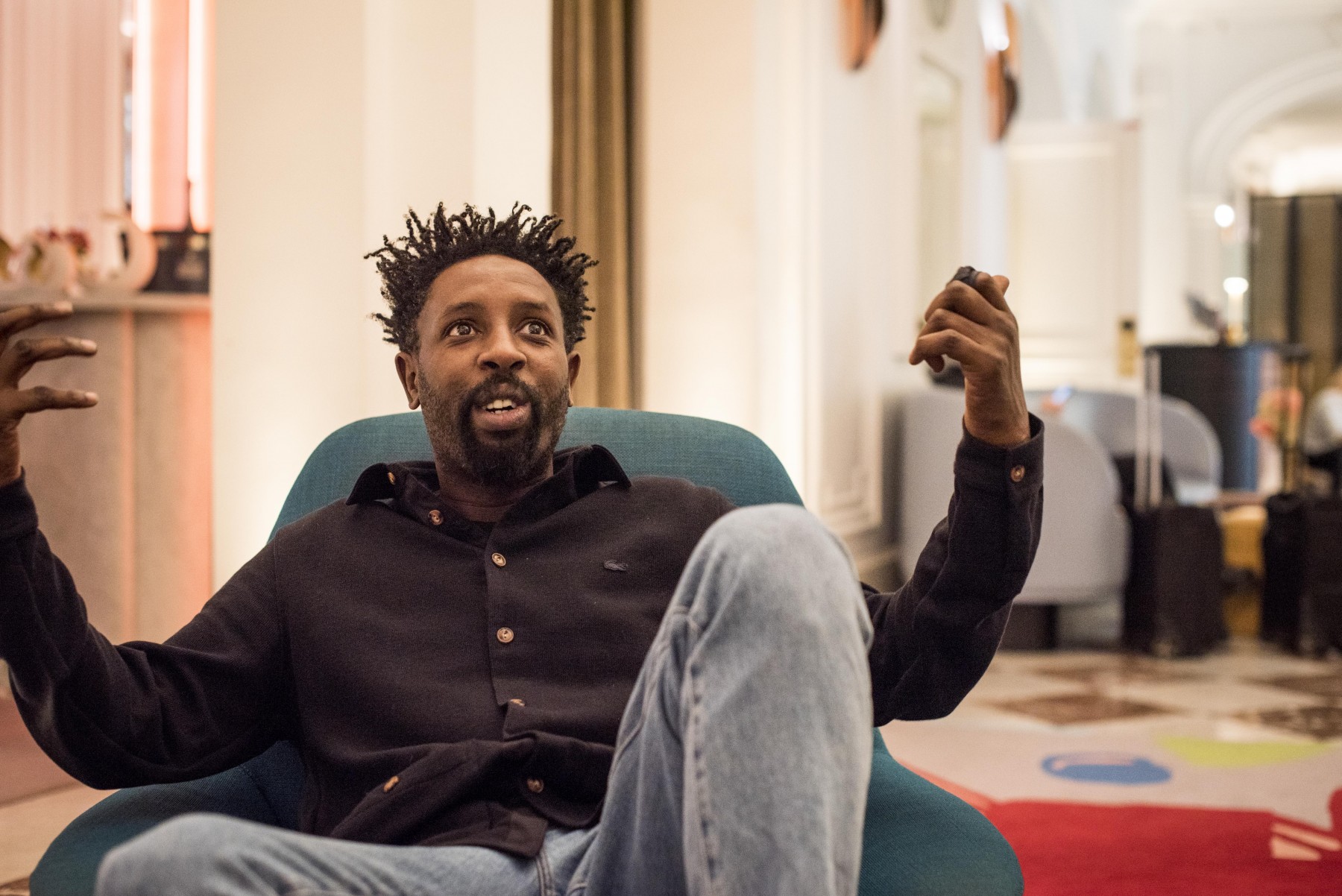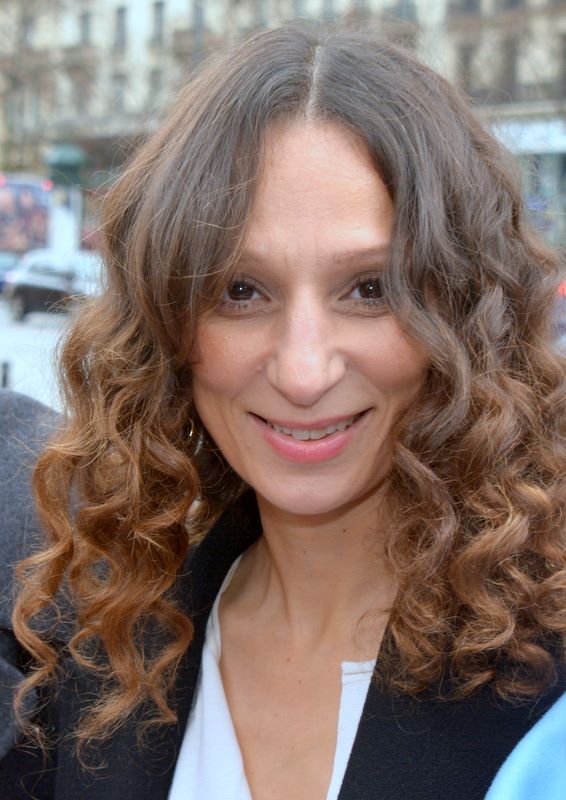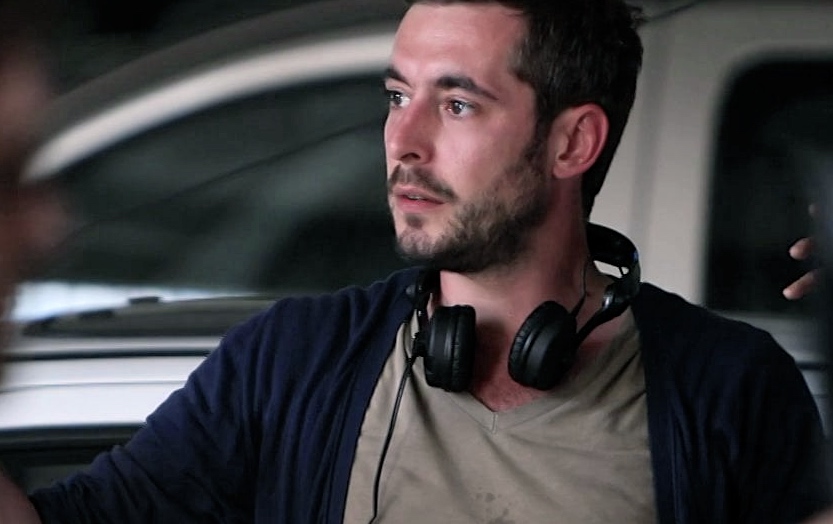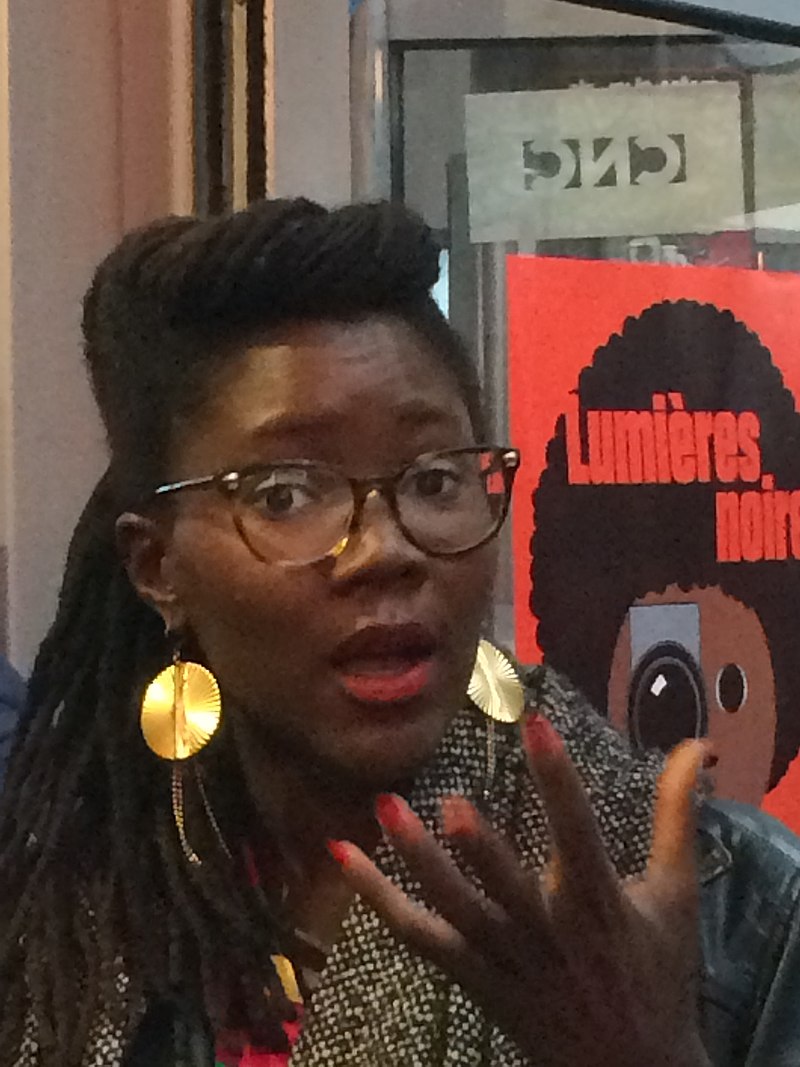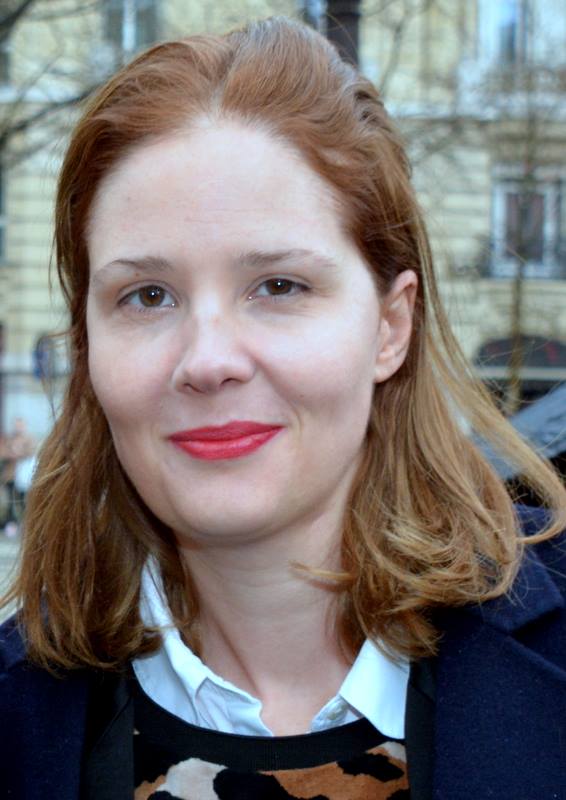Since the early days of film and pioneering works like Georges Méliès’s Le Voyage dans la Lune (A Trip to the Moon, 1902), the French have excelled at filmmaking. Considered in France as the 7th art form, a number of French filmmakers have left their mark on cinema history with their chef d’oeuvres. Here are some of the top classic French films made up to 1970 to add to your film list.
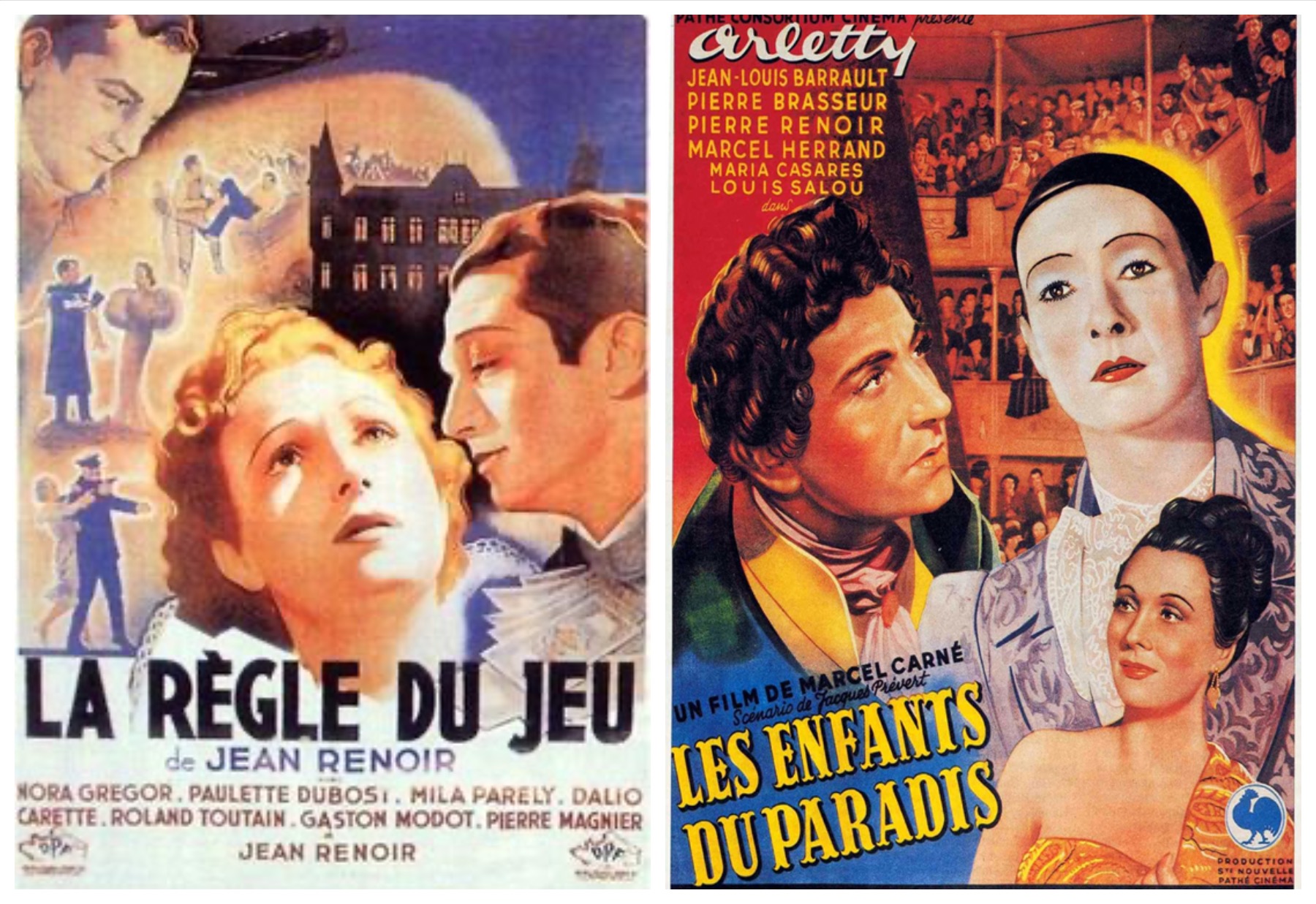
La Règle du jeu (The Rules of the Game, 1939), Jean Renoir
Although it was a commercial and critical flop at the time of its released just before the outbreak of WWII, after a reconstruction in 1959 La Règle du Jeu went on to be deemed one of the greatest films in cinema history. Mainly set in a country house outside Paris, the satirical comedy-drama criticizes the relationship the French haut bourgeoisie had with their servants.
Les Enfants du paradis (Children of Paradise, 1945), Marcel Carné
Set in the world of Parisian theatre of the 1830s, this film shot by Carné during WWII was voted “Best Film of the Century” by leading French film critics. Although the word paradis often refers to Heaven in French, it also is used to describe the second balcony or gallery in a theatre, which is its significance in Carné’s cinematographic masterpiece. The story revolves around a courtesan, played by legendary French actress Arletty, and four suitors, a mime, an actor, a well-known criminal and an aristocrat, all of whom attempt to woo her in different ways.
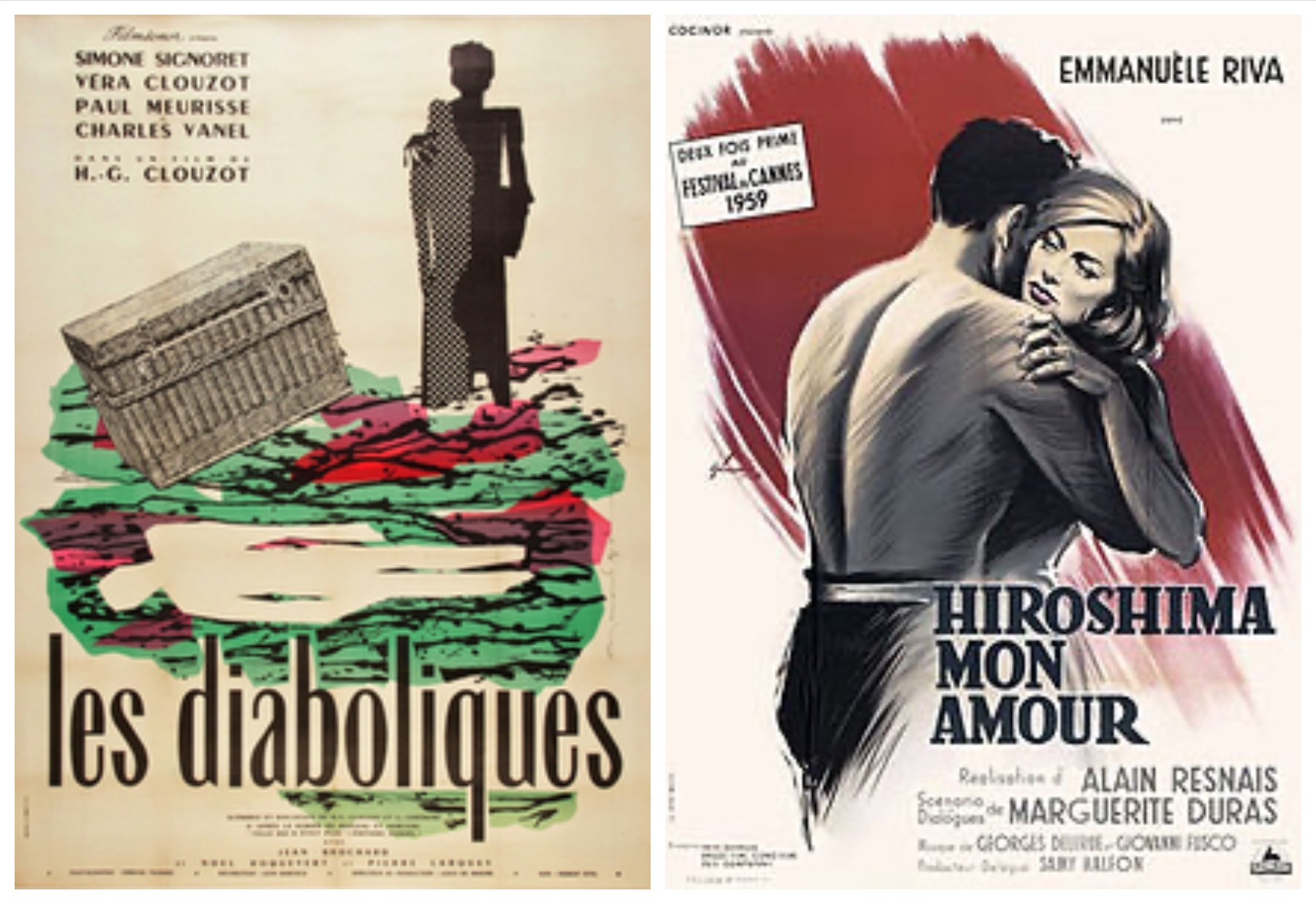
Les Diaboliques (Diabolique, 1955), Henri-Georges Clouzot
This psychological thriller film, starring Simone Signoret, Véra Clouzot, Paul Meurisse and Charles Vanel was based on the novel She Who Was No More (Celle qui n’était plus) by Pierre Boileau and Thomas Narcejac. The Hitchcockian plot revolves around a woman and her husband’s mistress who conspire to murder him.
Hiroshima mon amour (Hiroshima My Love, 1959), Alain Resnais
In his first feature-length film, Alain Resnais helped draw attention to the French Nouvelle Vague with his innovative use of flashbacks to create a non-lineal timeline. The film traces the relationship of a French woman, Emmanuelle Riva, and Japanese man, Eiji Okada, in the wake of the Hiroshima bombings. It received a number of accolades, including an Academy Award nomination for its screenwriter Marguerite Duras.
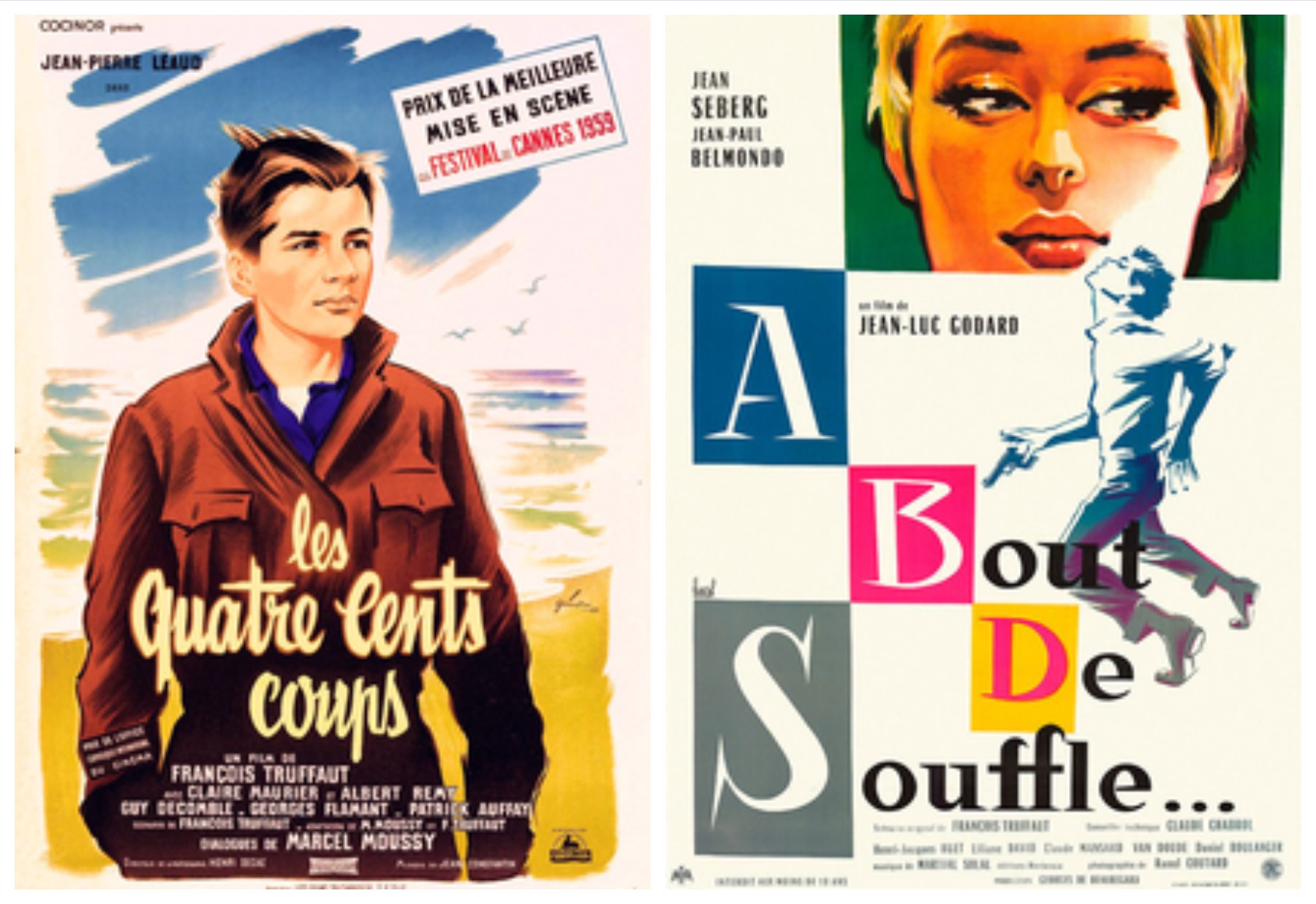
Les quatre cents coups (The 400 Blows, 1959), François Truffaut
The directorial debut of iconic filmmaker François Truffaut, this was a seminal film of the French New Wave Movement. The film also marked a long collaboration between Truffaut and actor Jean-Pierre Léaud, often referred to as the filmmaker’s onscreen alter ego. The film follows troubled teen Antoine Doinel as he rebels against his teachers and parents. The film was nominated for the Palme d’Or at the 1959 Cannes Film Festival at which Truffaut won the Award for Best Director.
À bout de souffle (Breathless, 1960), Jean-Luc Godard
An international hit when it was released, Jean-Luc Godard’s first feature film helped put the spotlight on the Nouvelle Vague. Considered one of the best films of all time, it stars Jean-Paul Belmondo, a wandering criminal, and Jean Seberg, a young American in Paris. A mix between romance and drama, Godard used a bold visual style and innovative jump cuts.
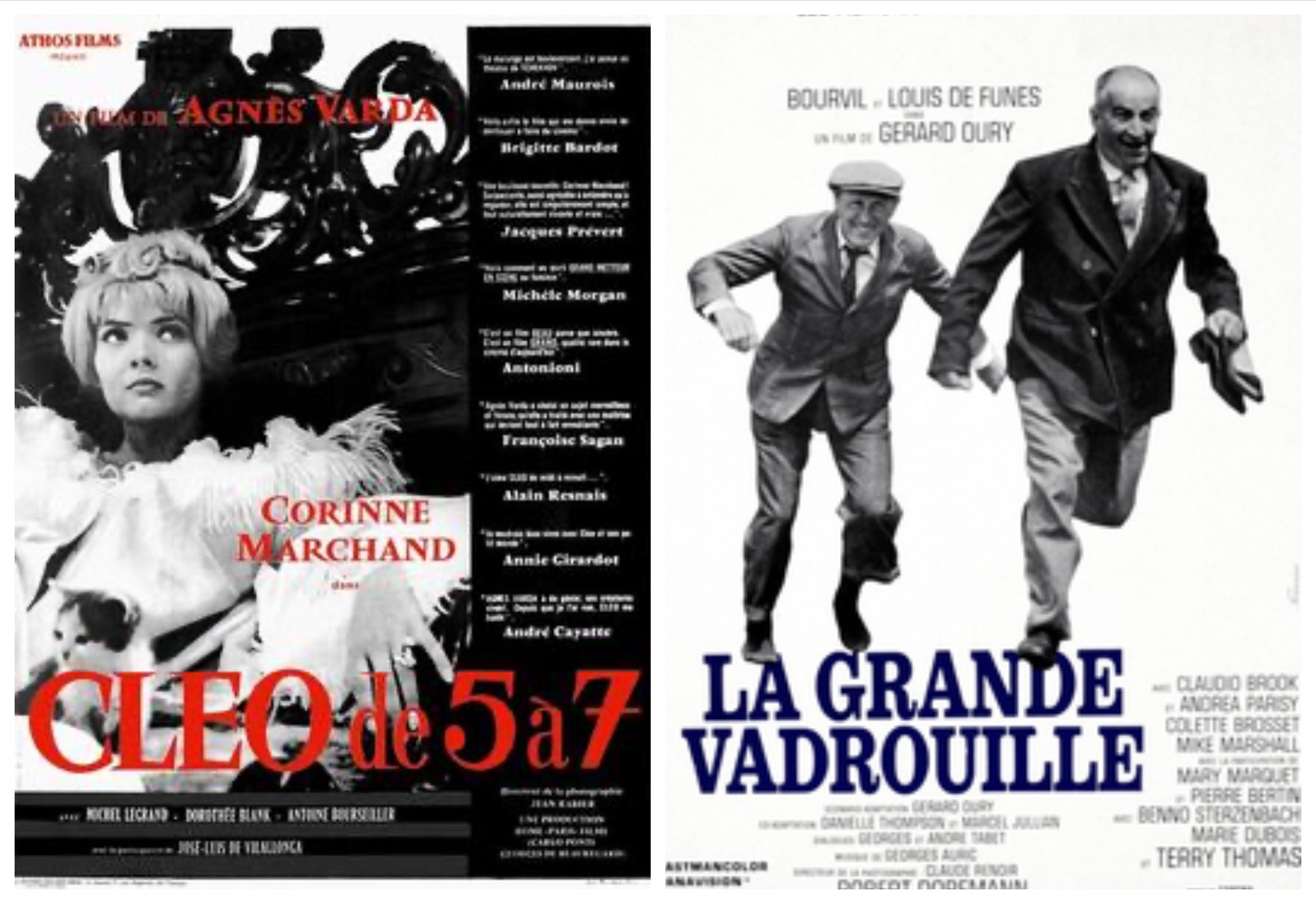
Cléo de 5 à 7 (Cléo from 5 to 7, 1962), Agnès Varda
One of the leading filmmakers of the French New Wave, this film launched Agnès Varda’s career and formed her artistic practice. The story followers a young singer, Florence “Cléo” Victoire, as she awaits test results for a possible diagnosis of cancer. Unfolding in real time, Varda plays with this through her editing. The film explores themes of existentialism, popularized at the time by philosophers like Jean-Paul Sartre and Simone de Beauvoir.
La Grande Vadrouille (Don’t Look Now… We’re Being Shot At!, 1966), Gérard Oury
For something a little more lighthearted, the French love comedies and this classic is high on the list of all-time favourites. Set in 1942, two French civilians, played by Louis de Funès and André Bourville, try to assist the crew of a Royal Air Force bomber shot down over Paris reach unoccupied France. Hilarious misadventures ensue.
Le Samouraï (The Samurai or The Godson, 1967), Jean-Pierre Melville
For those for a penchant for crime films, this is one of the best by French expert director of the genre Jean-Pierre Melville. Alain Delon plays a professional hitman who is seen by witnesses and then digs himself into a deeper hole trying to secure an alibi. Melville shows off his skills at creating suspense and ambiance.
Ma nuit chez Maud (My Night With Maud, 1969), Eric Rohmer
The last of the New Wave directors, this clever film raised Rohmer to the Pantheon of French filmmakers. The third film in his series of Six Moral Tales, the movie features features Jean-Louis Trintignant as a Catholic engineer who has a case of love at first sight with Françoise, a woman he meets by chance at Mass. He becomes determined to marry her, nevertheless, gets tempted by Maud, an alluring divorcée.
Interested in delving further into French Film? Learn more about our Master’s in Film in Paris at this link. The above films are often screen at these top Art House Cinemas in Paris.
